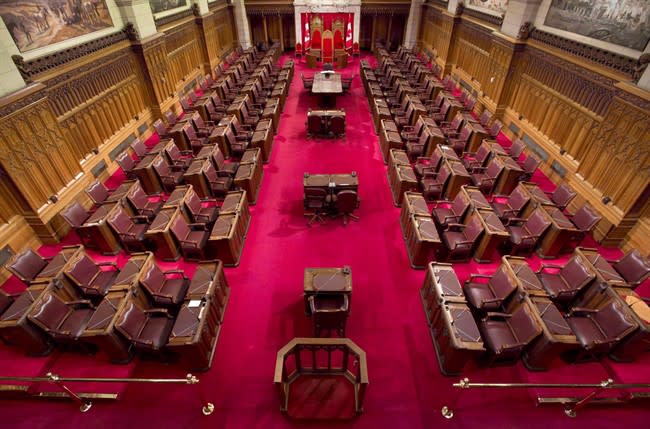 Canada Politics
Canada PoliticsSexual harassment code of conduct ready for adoption by the House of Commons

The House of Commons could very soon adopt a code of conduct to deal with sexual harassment between MPs, set to be in place when the House returns after the fall election.
The Procedure and House Affairs committee tabled a report in the House of Commons Monday outlining a code of conduct on sexual harassment — which would be the first of its kind in the world — with formal steps and mechanisms to deal with issues that aren’t of criminal nature between members of parliament.
A special committee of MPs had spent months studying the matter and hearing from witnesses, including former law clerks, lawyers and professors, behind closed doors.
The study was spurred on by incidents last fall involving two Liberal MPs — Scott Andrews and Massimo Pacetti — who were accused of sexually harassing female NDP MPs. Liberal leader Justin Trudeau subsequently booted the two MPs from caucus and rejected their nomination papers to run as Liberal candidates in the next election.
While pundits and commentators argued on various sides on the issue — that Andrews and Paccetti weren’t given a fair chance to air their story, that the women should come forward publicly with complaints — and while the Liberals and NDP fought viciously over which party handled things better and with more sensitivity for the women involved, one important problem emerged.
Parliament, an environment that can be very toxic for women, did not have any official mechanism for dealing with sexual harassment.
“A goal of the Member-to-Member sexual harassment Code is to create a culture in which ongoing deterrents to reporting are diminished and complainants feel as safe as possible in coming forward with a complaint,” the report reads, noting that the process of dealing with issues should be complainant-driven.When and if a complainant is satisfied, the process ends.
If the code of conduct for members is adopted, every MP will have to take an oath pledging to work in an environment free of sexual harassment.
The code of conduct would place some responsibility in the hands of party whips, who would be able to facilitate informal conversations, be involved with mediation and any possible investigations and coordinate punishments or other forms of resolution.
A chief human resources officer would serve as a first point of contact for complaints of sexual harassment between MPs and, if necessary, bring in an external investigator.
“This code is an important first step forward in making sure that Parliament is a sexual harassment-free workplace for everyone. Canada will be the first Parliament to have such a code in place,” said NDP MP Jean Crowder, one of the members of the subcommittee, in a statement.
She said the code of conduct will allow for a fair process that provides for confidentiality, protection and support to those making a complaint and for an independent non-partisan third party responsible for handling complaints.
“All parliamentarians share responsibility for ensuring that our workplace is safe and respectful,” Crowder said.

